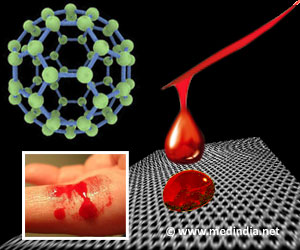Coating nanoparticles with complement proteins could reduce tissue damage and help treat inflammatory diseases like Parkinson's and Alzheimer's.
Scientists at Brunel University London have found a way of targeting hard-to-reach cancers and degenerative diseases using nanoparticles without causing the damaging side effects the treatment normally brings. The research helped discover proteins in the blood that disguise nanoparticles so they are absorbed into cells without causing inflammation and destroying healthy cells.
Two studies found that carbon nanotubes (CNTs) triggered a chain reaction in the complement system, from C1 at the start to C5 at the end, which is part of the innate immune system and is responsible for clearing pathogens and toxins. This activated the cell-killing membrane attack complex. In principle, this should have caused an acute allergic and inflammatory reaction. However the opposite was true.
The interaction between CNTs and C1q, a starter-protein for complement, was anti-inflammatory. This suggests that coating nanoparticles with complement proteins could reduce tissue damage and help treat inflammatory diseases like Parkinson's, Huntington's, ALS and Alzheimer's.
Source-Medindia

 MEDINDIA
MEDINDIA




 Email
Email










